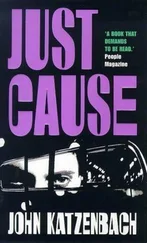Ricky, trying to be polite, replied with an efficient lie, “It’s part of an elaborate scavenger hunt. Just a summertime diversion for a couple of us who enjoy puzzles and word games.”
“Oh,” the woman replied. “That sounds like fun.”
Ricky didn’t respond to this, because there was little of fun in what he was doing. The woman at the newspaper read the rhyme back to him one last time to make certain she had the wording correctly, then took down the necessary billing information. She asked whether he wanted to be billed directly, or to put the charge on a credit card. He elected for the credit card response. He could hear her fingers clicking the computer keyboard as he read off his Visa number.
“Well,” the ad lady said, “that’s it, then. The ad will run tomorrow. Good luck with your game,” she added. “I hope you win.”
“So do I,” he said. He thanked her and hung up the phone. He turned back to the piles of notes and records.
Narrow and eliminate, he thought. Be systematic and careful.
Rule out men or rule out women. Rule out the old, focus on the young. Find the right time sequence. Find the right relationship. That will get a name. One name will lead to another.
Ricky breathed hard. He had spent his life trying to help people understand the emotional forces that caused things to happen to them. What an analyst does is isolate blame and try to render it into something manageable, because an analyst would think of the need for revenge to be as crippling a neurosis as anyone could suffer.would want the patient to find a way past that need and beyond that anger. It wasn’t uncommon for a patient to start a therapy stating a fury that seemed to demand an acting-out response. The treatment was designed to eliminate that urge, so that they could get on with their life unencumbered by the compulsive need to get even.
Getting even, in his world, was a weakness. Perhaps even a sickness.
Ricky shook his head.
As his head spun, trying to sort through what he knew and how to apply it to his situation, the telephone on the desk rang. It startled him, and he hesitated, reaching out for it, wondering whether it would be Virgil.
It was not. It was the ad lady at the Times .
“Doctor Starks?”
“Yes.”
“I’m sorry to call you back, but we had a little problem.”
“A problem? What sort of problem?”
The woman hesitated, as if reluctant to say, then continued, “The Visa card number you gave me, uh, it came back canceled. Are you certain you gave me the proper number sequence?”
Ricky blushed, alone in the room. “Canceled? That’s impossible,” he said indignantly.
“Well, maybe I got the number wrong…”
He reached for his wallet and pulled out the card, reading off the sequence of numbers again, but slowly.
The woman paused. “No, that’s the number I submitted for approval. It came back that the card had been recently canceled.”
“I don’t understand,” Ricky said with mounting frustration. “I didn’t cancel anything. And I pay off the entire balance every month…”
“The card companies make more mistakes than you’d think,” the woman said, apologetically. “Have you got another card? Or maybe you’d just prefer me to send you a bill and you can pay by check?”
Ricky started to remove another card from his wallet, then abruptly stopped. He swallowed hard. “I’m sorry for the inconvenience,” he said slowly, suddenly working hard to keep himself under control. “I will have to contact the credit card company. In the meantime, please just send me the bill as you suggest.”
The woman mumbled an agreement, double-checking his address, then adding, “It happens all the time. Did you lose your wallet? Sometimes thieves get numbers from old statements that are tossed away. Or you buy something and the clerk sells the number to a crook. There are zillions of ways cards get screwed up, doctor. But you better call the issuing company and get it straightened out. You don’t want to end up fighting over charges you don’t make. Anyway, they’ll probably just overnight you a new card.”
“I’m sure,” Ricky said. He hung up the phone.
Slowly he extracted each of the credit cards from his wallet. They’re all useless, he told himself. They have all been canceled. He didn’t know how, but he knew by whom.
Still, he started the tedious process of calling to discover what he already knew to be true. The telephone customer service clerks at each credit card company were friendly but not very helpful. When he tried to explain that he hadn’t actually canceled his cards, he was informed that he indeed had. That’s what their computers showed, and whatever the computer showed, had to be right. He asked each company exactly how the card had been canceled, and each time he was told that the request had been made electronically, through the bank’s Web sites. Simple transactions of that sort, the clerks dutifully pointed out, could be accomplished with a few simple swipes at a keyboard. This was, they said, a service that the bank offered, to make financial life easier for their clients, although Ricky, in his current state, might have debated that. All offered to open new accounts for him.
He told each company he would get back to them. Then he took some scissors he kept in his top drawer and cut each of the useless pieces of plastic in half. It was not lost on Ricky that this act was precisely what some patients had been forced to do, when they allowed themselves to get overextended with their credit and into debt.
Ricky did not know how far into his finances Rumplestiltskin had managed to penetrate. Nor did he know how. Debt is a concept close to the game the man had created, Ricky thought. He believes I owe him a payment, and not one that can be paid by check or credit card.
A visit in the morning to the local branch of his bank was in order, Ricky thought. He also placed a telephone call to the man who handled his modest investment portfolio, leaving a message with a secretary, asking that the broker call him back promptly. Then he sat back for a moment, trying to imagine how Rumplestiltskin had entered this part of his life.
Ricky was a computer idiot. His knowledge of the Internet and AOL, Yahoo, and eBay, Web sites, chat rooms, and cyberspace was limited to a vague familiarity with the words, but not the reality. His patients often spoke of life connected to the keyboard, and in that way he’d gained some appreciation of what a computer could do, but more of what a computer did to them. He had never seen any need to learn any of this himself. His own writing was scrawled in pen in notebooks. If he had to compose a letter, he used an antique electric typewriter that was more than twenty years old and kept in a closet. He owned a computer, in a way. His wife had purchased one in the first year of her disease, then upgraded it a year before her death. He had been aware that she had used the machine to electronically visit cancer support groups and to speak with other cancer victims in that curiously detached world of the Internet. He had not joined her in these sorties, thinking that he was respecting her privacy by not intruding, when another might have suggested that he was simply not showing enough interest. Shortly after she’d died, he’d taken the machine from the desk in the corner of their bedroom that she’d occupied when she was able to gather the energy to get out of bed, and packed it away in a box and stuck it in the basement storage rooms of his building. He had meant to throw it out or give it to some school or library, and had just never gotten around to it. It occurred to him that he might need it, now.
Because, he suspected, Rumplestiltskin knew how to use one.
Ricky rose from his seat, deciding in that instant to recover his dead wife’s computer from the basement. In the top right-hand desk drawer, he kept a key to a padlock, which he grabbed.
Читать дальше












